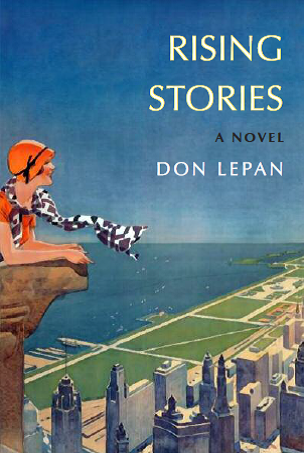That’s not as ludicrous an argument as at least a few vegans have suggested. Gary Yourofsky, for example, ridicules such notions in this Facebook post for the Evolve Campaign:
The second inanity of meat-eaters is attempting to indict the vegan lifestyle by claiming that plants suffer and die to feed the vegans of the world. Yet, I am still searching for People for the Ethical Treatment of Carrots, Last Chance for Broccoli or Apples Deserve Absolute Protection Today and Tomorrow. … People for the Ethical Treatment of Carrots doesn't exist because everyone knows the difference between taking a carrot out of the ground and slicing a pig into pieces. Everyone also knows the difference between mowing a lawn and tossing a live baby male chick (egg industry) into a rendering machine. If one does not understand the difference, then that person is disingenuous, irrational and illogical. (“The ridiculous ‘But you're killing plants’ argument,” March 6, 2011)*Yourofsky's ridicule seems to me to be unnecessary and unfortunate. Along the way, though, he does come close to making one reasonable argument. Almost everyone does surely sense there to be a “difference between taking a carrot out of the ground and slicing a pig into pieces, [or] between mowing a lawn and tossing a live chick into a rendering machine.” But do we know that the carrot and the blade of grass do not suffer? Do we even know that the carrot and the blade of grass do not suffer to the same extent as the pig or the baby chick? Do we know those things with absolute, 100% certainty? I think if we are honest we probably have to answer no to that question.
For some years a small minority of scientists and philosophers have been suggesting that plants should have moral standing (see, for example, University of Victoria philosopher Thom Heyd’s interesting article, “Plant Ethics and Botanic Gardens,” PAN: Philosophy Activism Nature, Issue 9, 2012); and that plants possess some form of sentience and should be granted rights (see, for example, Brilliant Green: the Surprising History and Science of Plant Intelligence, co-authored by neurobiologist Stefano Mancuso, 2015**).
I’ve been a bit nervous in the past about giving credence to such arguments—primarily, I realize now, out of a fear that, to the degree that those of us who are interested in reducing animal suffering accept them, we open the door to just the sort of reductionist anti-vegan argument outlined above. The more I think about it, though, the more I’m persuaded that we should in fact welcome the sorts of arguments that Heyd, Mancuso, and others put forward. We should welcome them, first of all, as we should welcome all disinterested inquiry. But we should welcome them too because, if anything, they strengthen the arguments for adopting a plant-based diet.
A key consideration here is that we need not have absolute proof that plants do not experience pain in order to argue against the practice of inflicting what is obviously extreme suffering on farm animals; we can readily enough deal in probabilities. Scientists such as Robert Elwood have spent a good deal of time investigating the degree to which creatures such as lobsters and shrimp feel pain, and concluded that they do in fact experience something closely akin to what we call pain; in many cases exhibiting “prolonged and complicated behavior, which clearly involves the central nervous system,” as Elwood puts it. We know from our own experience under local or general anesthetic how important our nervous system is to our ability to experience pain. Even if plants, which of course lack a central nervous system, can feel something akin to the pain that vertebrates feel, it seems fair to conclude that the overwhelming weight of probability is that killing and eating animals entails causing a great deal more suffering than does the killing and eating of a carrot. For this argument based on probability to constitute a sound ethical justification for a vegan diet, we need not claim that we know with 100% certainly that plants do not feel some form of pain less extreme than that of the screaming pig—and we certainly need not claim we know that plants lack any capacity whatsoever to experience pain.
But what if it were true that the carrot and the blade of grass suffered just as much as the screaming pig? The ethical argument for a plant-based diet would in that case become even stronger. That’s because “food animals” do not arrive on humans' plates ex nihilo; they consume vast quantities of plant matter over the course of their lives. Indeed, as the film and associated book Cowspiracy make so dramatically clear, “worldwide, 50% of the grains and legumes we’re growing we are feeding to animals. … In the United States, it’s closer to 70, 80%--about 90% of the soybeans.” (Dr. Will Tuttle, as quoted on page 244). So if killing plants does in fact cause pain and suffering in itself, we are still minimizing suffering by eating a plant-based diet. By eating meat and and dairy products we cause more pain and suffering to plants than we would if we ate only plants--plus, of course, we cause vast amounts of pain and suffering to be inflicted on non-human animals.
From any angle, then, in order to reduce pain and suffering we should adopt a plant-based diet. But arguably, we should emphasize certain plant foods over others. One of the interesting points Heyd makes is this:
[W]hen we obtain food from plants we need not kill the plant, as in all the cases in which fruits, seeds, nuts, or ‘spare’, non-essential, leaves are consumed. This is the case with most staples, such as wheat, rice or the various sorts of beans (legumes), which are seeds normally harvested after maturity of the plant. It is also the case with regard to all the food items that, in common parlance, are called ‘vegetables’ but really are fruits, such as tomatoes, squashes (such as zucchinis and pumpkins), cucumbers, or tubers (such as potatoes).I would stop well short of suggesting there is any moral imperative not to eat carrots. But Heyd, Mancuso, et al. give us plenty of food for thought—and even more reason to stick to a plant-based diet.
*In fairness to vegans as a group, Yourofsky's tone does not seem to me to be typical. More representative, more measured in tone, and better reasoned are the arguments on this point put forward by Free from Harm: ("Eating Animals: Addressing Our Most Common Justifications," by the Free From Harm Staff Writers, March 27, 2014). **I’m indebted to Rhona McAdam for pointing me in the direction of this book recently.





No comments:
Post a Comment
Comments welcome!